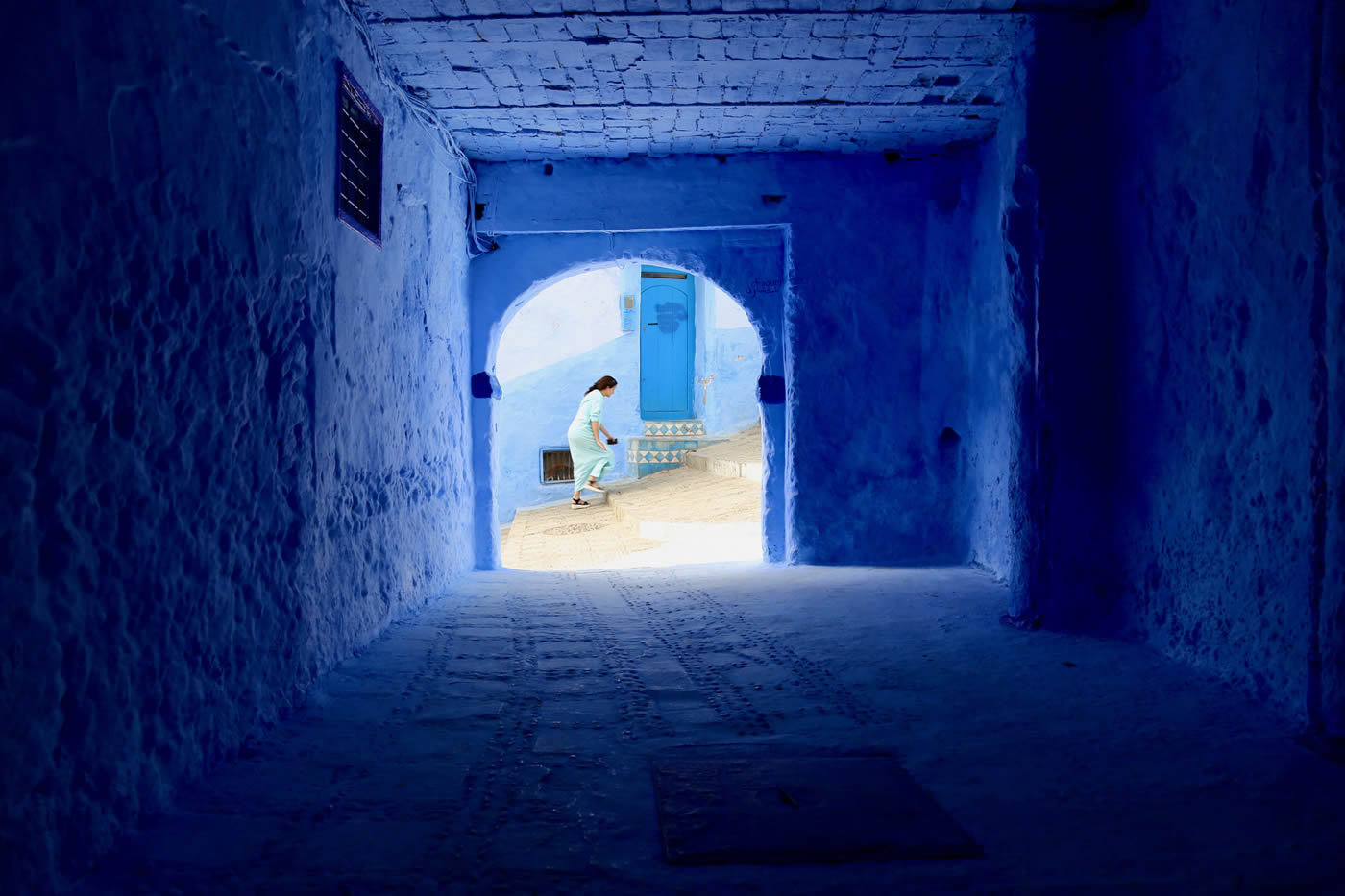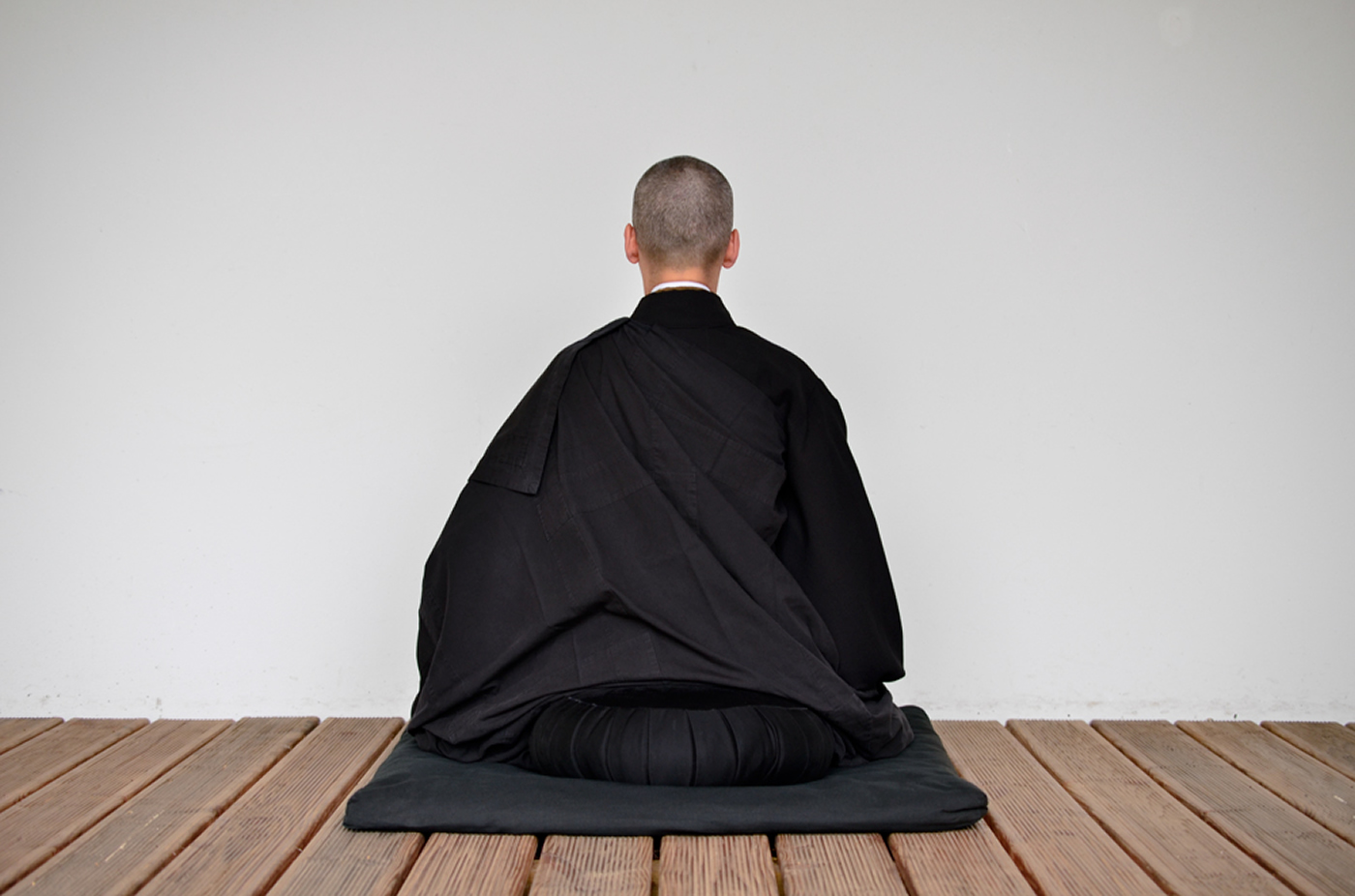Class 5: The best time to trigger karmas
Hi, welcome back to the Wheel of Life online retreat, and we’re reaching session 5. The name of this session is “The Best Time to Trigger Karmas.” And the picture you see here is somebody talking to a person who’s on their deathbed.
And this session we’re going to follow the Tibetan text pretty closely. If I say something that’s kind of intriguing or interesting, to me especially, then I’m going to stop and we’re going to go deeper. I know it’s slower. I know some of you don’t want to learn the ancient language and I don’t care. So I’m going to do it my way.
[su_icon icon=”icon: link” color=”#ff1259″ size=”20″ shape_size=”12″ url=”https://www.youtube.com/watch?v=QSzNL4fryOU&t=6s” target=”blank”]Video[/su_icon]Okay, so here we go!
su dep-pay du ni (GSOS ‘DEBS PA’I DUS NI). su dep-pay du ni means: at what point in the death process do our karmas get activated? chi khar (‘CHI KHAR) means “at the moment of death.”
rang gi drenpa-am shen gyi dren du chukpa gang rung gi go ne (RANG GIS GRAN PA’AM GZHAN GYIS DRAN DU BCUG PA GANG RUNG GI SGO NAS) means: it doesn’t matter whether you remember to think about something, or your friend or your relative is standing there next to you as you die, and they dren du chukpa (DRAN DU BCUG PA) means: they remind you, they say “don’t don’t forget to have a good seed.”
And it could be depa dang nying je (DAD PA DANG SNYING RJE) means: maybe they remind you “try to have faith towards your teacher.” Or try to have compassion for people. So those are an example of gewa (DGE BA). gewa means “a good seed at the moment of death”.
But it could be du chak (‘DOD CHAGS) or kong tro (KHONG KHRO)–it could be strong desire or strong anger. Which is mi geway chu (MI DGE BA’I CHOS); it means “to die with bad seeds.”
gang run (GANG RUNG) means: it doesn’t matter whether we’re talking about good seeds when you die, or bad seeds when you die. But we’re talking about du she rakpa jungway bardu (‘DU SHES RAGS PA ‘BYUNG BA’I BAR DU), which means still your mind is in this world.
You’re still generally seeing the same world. It’s still your relatives standing around you. It’s still the hospital room where they put you when you got sick. sem la chupa yin (SEMS LA SPYOD PA YIN) means: your mind is operating on this level of normal reality.
[su_icon icon=”icon: link” color=”#ff1259″ size=”20″ shape_size=”12″ url=”https://www.youtube.com/watch?v=QSzNL4fryOU&t=1m29s” target=”blank”]Video[/su_icon]Now let’s go back to the text.
du she rakpa gak ne (‘DU SHES RAGS PA ‘GAGS NAS)–“when that rough awareness stops.” And you move into chi sem tramoy (‘CHI SEMS PHRA MO’I) means “a very subtle awareness of death.” It’s a primitive awareness that you’ve had for many, many, many billions of lifetimes. That primitive–almost animal–state of mind is lung ma ten (LUNG MA BSTAN). lung ma ten means “karmically neutral.” It’s as if you were deeply drugged or something. ge mi ge gang yang dren mi nu (DGE MI DGE GANG YANG DRAN MI NUS)–you can’t even frame the thought. “you can’t even think about good karma or bad karma.” Your mental state is just like very drunk or something.
de na (DES NA)–“therefore,” chi ka may sem la depa sok jung na (‘CHI KHA MA’I SEMS LA DAD PA SOGS BYUNG NA). If at that moment–just as your mind is about to switch to the more primitive state of mind–if you can activate a good seed, that’s the moment that you should try. So, you and your loved ones, you should try at that moment. Just as you’re losing awareness of this world. ne che (GNAD CHE) means it’s “extremely important” to try to go out, we say ‘go out of the picture,’ with a pure state–a virtuous state of mind.
[su_icon icon=”icon: link” color=”#ff1259″ size=”20″ shape_size=”12″ url=”https://www.youtube.com/watch?v=QSzNL4fryOU&t=4m44s” target=”blank”]Video[/su_icon]Then Pabongka Rinpoche, who is the author here, the speaker–who was one of my teacher’s teachers when my teacher was a young man–he addresses a frequently asked question:
gyun du gewa je khen gyi chupa shik yin kyang (RGYUN DU DGE BA BYED MKHAN GYI CHOS PA ZHIG YIN KYANG) … now, you may be a Dharma person–and the Tibetan is literally “Dharma person,” chupa (CHOS PA). chu (CHOS) means “Dharma” and chupa is an unusual word, but it means “person who likes to do Dharma.”
So gyun du gewa je khen (RGYUN DU DGE BA BYED MKHAN) you can be a “person who their whole life was a pretty good person.” And you were a chupa zhik (CHOS PA ZHIG)–a “Dharma person.” For $20, what’s the word kyang (KYANG)?
[Stanley: “but”] Dang, he’s correct again! If you get rich, you have to spread it to all the online students.Okay, maybe you were a pretty good person your whole life, kyang–but, chi kar (‘CHI KHAR), “at the moment of that death” when you lose this world consciousness, kong tro tabu kye (KHONG KHRO LTA BU SKYES), if you “suddenly get an emotion of anger” at somebody, chi sem mi gewa la su tab (‘CHI SEMS MI DGE BA LA GSOS BTAB), that karma will be triggered.
And remember Vasubandhu said…yeah, closer to death. And I think he’s talking about this moment. Sometimes I taught it to people, like in the last week or the last two weeks. But this one seems to be in that crucial few minutes when you are losing awareness of this world, and you’re going into that primitive state of mind.
[su_icon icon=”icon: link” color=”#ff1259″ size=”20″ shape_size=”12″ url=”https://www.youtube.com/watch?v=QSzNL4fryOU&t=7m25s” target=”blank”]Video[/su_icon]So, here’s the bad news. ngun du mi gewa min (SNGON DU MI DGE BA SMIN), the “bad karma will ripen first.” That new bad karma. ngen song du dro (NGAN SONG DU ‘GRO), you will go to one of the three lower births: animal, hungry spirit, or hell realms.
And here’s the good news. gyun du dikpa je khen la-ang (RGYUN DU SDIG PA BYED MKHAN LA’ANG), but if you’re the kind of “person who spent their whole life doing bad things,” de rik dre (DES RIGS ‘GRE). de rik dre means “the same pattern applies” to you, luckily.
So, if you’ve been a not very good person your whole life, but in the last minutes of your life, you know, you take refuge in the Three Jewels, or you think of some holy being. And there’s a great Christian custom that the priest will try to be there as you die, and they will whisper in your ear, “Imagine all your bad deeds are clean.”
In Buddhism, we would also say if your last thoughts are pure and you regret your bad deeds, then that last karma would take priority over a whole life of not very good karma. So let’s try to die well, okay? And I think that would involve training your family to help you at that moment.
dey kab su de gro dang ngen dro gang du drowa sok ni (DE’I SKABS SU BDE ‘GRO DANG NGAN ‘GRO GANG DU ‘GRO BA SOGS NI), now “at that moment”–as your consciousness shifts–if we’re standing there watching you, is there any “indication that you’re going to a good place or a bad place”?
This is kind of subtle. de dror dro na dru me ne yar nying gar duwa dang (BDE ‘GROR ‘GRO NA DROD SMAD NAS YAR SNYING GAR BSDU BA DANG)–“if you’re going to go to a good place, the warmth of your body withdraws from the feet to the heart.” So, that person’s feet get cold first. Then their lower leg. Then their thigh. Then their abdomen. And then the warmth dissipates at the heart.
Now, if you’re going to go to a bad place … ngen dror dro na de le dokpa sok (NGAN ‘GROR ‘GRO NA DE LAS LDOG PA SOGS), and the opposite would be the case if you’re going to a bad place. So, some people would say that the warmth retreats. The cold comes in this way. So, there’s different options of the warmth coming in, and the warmth coming out.
[su_icon icon=”icon: link” color=”#ff1259″ size=”20″ shape_size=”12″ url=”https://www.youtube.com/watch?v=QSzNL4fryOU&t=10m20s” target=”blank”]Video[/su_icon]ne chu che chung sok la takpe she (GNAD GCOD CHE CHUNG SOGS LA BRTAG PAS SHES), you can also get an indication of where the person’s going to go by how much ne chu kyi dukngel (GNAD GCOD KYI SDUG BSNGAL) they have. And this is an idiom in the ancient languages. dukngel (SDUG BSNGAL) is easy, that means “suffering.”
ne chu (GNAD GCOD) means: “the crucial points in your body are getting cut.” And there’s Sanskrit; it’s called marmaccheda. So, marma, you know, it’s a “crucial point.” For example, there’s an artery right here. With a small cut, you can kill a person. And nobody can fix you. Then that’s called marma–crucial point. Literally means “death point,” and mar, the Sanskrit mar, means like “murder” or “mortuary.”
And cheda means “cut,” like in vajra chedika. And for zero dollars…yeah, “to cut.” And so when those crucial chakra points get cut, when the life dies in those crucial places, there’s special sharp pains. And they say it’s worse than any pain you can have in your whole life. So, if the person is dying and they’re like screaming really loud it means ne chu kyi dukngel, those crucial points are being cut. And they are going down.
Okay, then he explains the word ne chu, which we did already. ga shik chi ka ne trul nang shar te (‘GA’ ZHIG ‘CHI KA NAS ‘KHRUL SNANG SHAR TE)–“some people when they die start to have hallucinations.” sharwa (SHAR BA) here means they have the impression–and this is a strange expression that blocks of Chinese tea are being stacked on their chest.
Then they feel very heavy, crushing their chest. Or some big guy is shoving down on their chest. Then Pabongka Rinpoche gives a few real examples, maybe he saw these, I don’t know. ngar hla sar shung say chak dzu nang sen (SNGAR LHA SAR GZHUNG SA’I PHYAG MDZOD NANG ZAN)–before, there was a government official in the city of Lhasa. zhung (GZHUNG) here means “federal government.” Then they use a very unusual Tibetan word called nang sen (NANG ZAN). It means “eat inside.”
It means a low government official who didn’t get a salary. They just get food. Okay, that’s all. Or a person who’s a servant or a slave in those days–they don’t get a salary, they just feed them. Then ja kuwa (JA BRKU BA), he “stole some tea.” shik chi khar ja gam mangpu nen ongway trul nang ngenpa jung te (ZHIG ‘CHI KHAR JA SGAM MANG POS MNAN ‘ONG BA’I ‘KHRUL SNANG NGAN PA BYUNG STE)
Then as he died, he had this hallucination that there were boxes of Chinese tea stacked on his chest. Then he had these terrible hallucinations. shiwa sik tsul (SHI BA GZIGS TSUL) means our Lama described in his teaching how he had witnessed that himself. tsang ne punpo shik (GTZANG NAS DPON PO ZHIG), and then there was an official from Tsang, which is the state north of Lhasa. chi khar (‘CHI KHAR) means “as he was dying,” ngay teng ne mi mangpu nen jung ser te (NGA’I STENG NAS MI MANG POS MNAN BYUNG ZER TE), he yelled out, “there are many strong men crushing” his chest jik trak gi ngang ne tse phupa (‘JIGS SKRAG GI NGANG NAS TSE ‘PHOS PA) and he died–which really means his consciousness shifted levels, with great jik trak (‘JIGS SKRAG)–means “terror.”
So jik (‘JIGS) means “fear.” We have a good dear friend called Jigme (‘JIGS MED), and that means “fearless.” And the Sanskrit is? … abhaya, and that was the name of Naropa. His [Naropa’s] original name. Okay, gewa jepa-ang (DGE BA BYED PA’ANG)–now if you’re a person who “did some good karmas,” even if you’re a trangpo (SPRANG PO), which means “a beggar.” And here’s another idiom that has sen (ZAN), meaning “to eat” in it: lam sen (LAM ZAN).
So guess what’s a lam sen–without looking at my notes. lam? [path] Yeah, he “eats on the road”–it means he’s poor. Like, he’s sitting on the side of the road, he asks if you have an extra piece of pizza. And then he just sits there in the dirt and eats the piece of pizza. So forget it, he’s not a big government official. He’s just sitting there, guk (BSGUGS) means “waiting,” and du (SDOD) means sitting on the side of the road “hoping” someone will give him some piece of pizza or something. chiwar nyewa na (‘CHI BAR NYE BA NA)–and then he was “close to dying,” he “started to die.” khang sang dang u-karpoy nangwa jungwa dang (KHANG BZANG DANG ‘OD DKAR PO’I SNANG BA BYUNG BA DANG)–he saw palaces and beautiful white light, and he saw some kind of paradises.
[su_icon icon=”icon: link” color=”#ff1259″ size=”20″ shape_size=”12″ url=”https://www.youtube.com/watch?v=QSzNL4fryOU&t=14m22s” target=”blank”]Video[/su_icon]So, if you have good karmic seeds, just before the mind shifts levels, you will have some extraordinarily beautiful visions. And chu sang du (CHU BZANG DU)–chu sang is like a district in Tibet. mani mangpo tunpay gen-mo (MA nI MANG PO BTON PA’I RGAN MO)–there was an old, old lady but she’s doing a lot of om mani padme hungs–with a good heart chi kar (‘CHI KHAR) when she died, she had many beautiful visions. That tsul (TSUL) here means our Lama described those to us. And then he ends this segment.
de tabuy taknam ma chiy gong ne ngundro tar jungwa yin (DE LTA BU’I RTAGS RNAMS MA ‘CHI’I GONG NAS SNGON ‘GRO LTAR ‘BYUNG BA YIN) When you get these kinds of visions, it’s not actually the moment of death. They are kind of like preliminaries. Yeah, so it’s not like you have that vision and you go there immediately or something like that. It’s while your mind is still in this world, you will have those visions, but then the mind shifts to that very like almost animal state of mind.
So, to summarize the point of this section, and don’t forget the picture of a person talking to someone dying. You know, a lot of people ask lamas, including my lama, after someone dies, “What can I do to help them?” But what they’re saying here is, a very good time to help someone is before their awareness of this world collapses–talk to them about the good things they’ve done in their life.
Maybe they did many bad things in their life. This is not the time to talk about them. This is the time to say something encouraging. And any little thing that they did that’s a good thing, praise them and say, “Oh, you should be so happy!” “You remember you did that good thing?” “That was amazing!” So what this section is talking about, if you want to help other people, then remind them–while they’re still aware of this world–about the good things they did.
[su_icon icon=”icon: link” color=”#ff1259″ size=”20″ shape_size=”12″ url=”https://www.youtube.com/watch?v=QSzNL4fryOU&t=23m52s” target=”blank”]Video[/su_icon]Then there are descriptions in some traditions about powa (PHO BA). And these are special methods to use after you lose this world’s awareness. When the awareness drops down to almost animal level, you have a standard set of hallucinations. And they are connected to the dissolution of the elements in your body.
sa chu me lung (SA CHU ME RLUNG)–as the earth element collapses in your physical body, your primitive mind has a perception of an earthquake or landslides. And then, as the water element dissolves, you have this perception of floods–you carried away under floods, you’re drowning. Then, as the fire element dissolves, you have this hallucination of a desert and fire. And then lung (RLUNG), as the wind element starts to conclude, first there’s a tornado or tempest, but then you see a very … like a still candle flame. And it’s steady–it’s not moving at all.
So those are standard hallucinations that everybody has as they die. And we described them in a previous lam rim section. And if you’re interested in them, Tim is going to put up a web address. If you have some extra time during your online retreat, then you can go listen to those descriptions.
For a person who has practiced many, many, many years how to die, there is a few moments’ space in that insanity where you could see emptiness. But I would say the chances of that are like one in a million. So the recommendation of my teachers is don’t wait until you’re in the middle of these intense hallucinations where the whole world is collapsing. Don’t wait until then to try to see emptiness. Because the odds are like a million to one against you. It’s better sitting at home watching a pleasant online retreat, with a comfortable couch, and nice incense, nice quiet meditation room–than try to see emptiness.
Okay, we’ll see you in the next segment.
And thank you for being with us, and thank you, Stanley, for translating.
[su_icon icon=”icon: link” color=”#ff1259″ size=”20″ shape_size=”12″ url=”https://www.youtube.com/watch?v=QSzNL4fryOU&t=27m54s” target=”blank”]Video[/su_icon]





